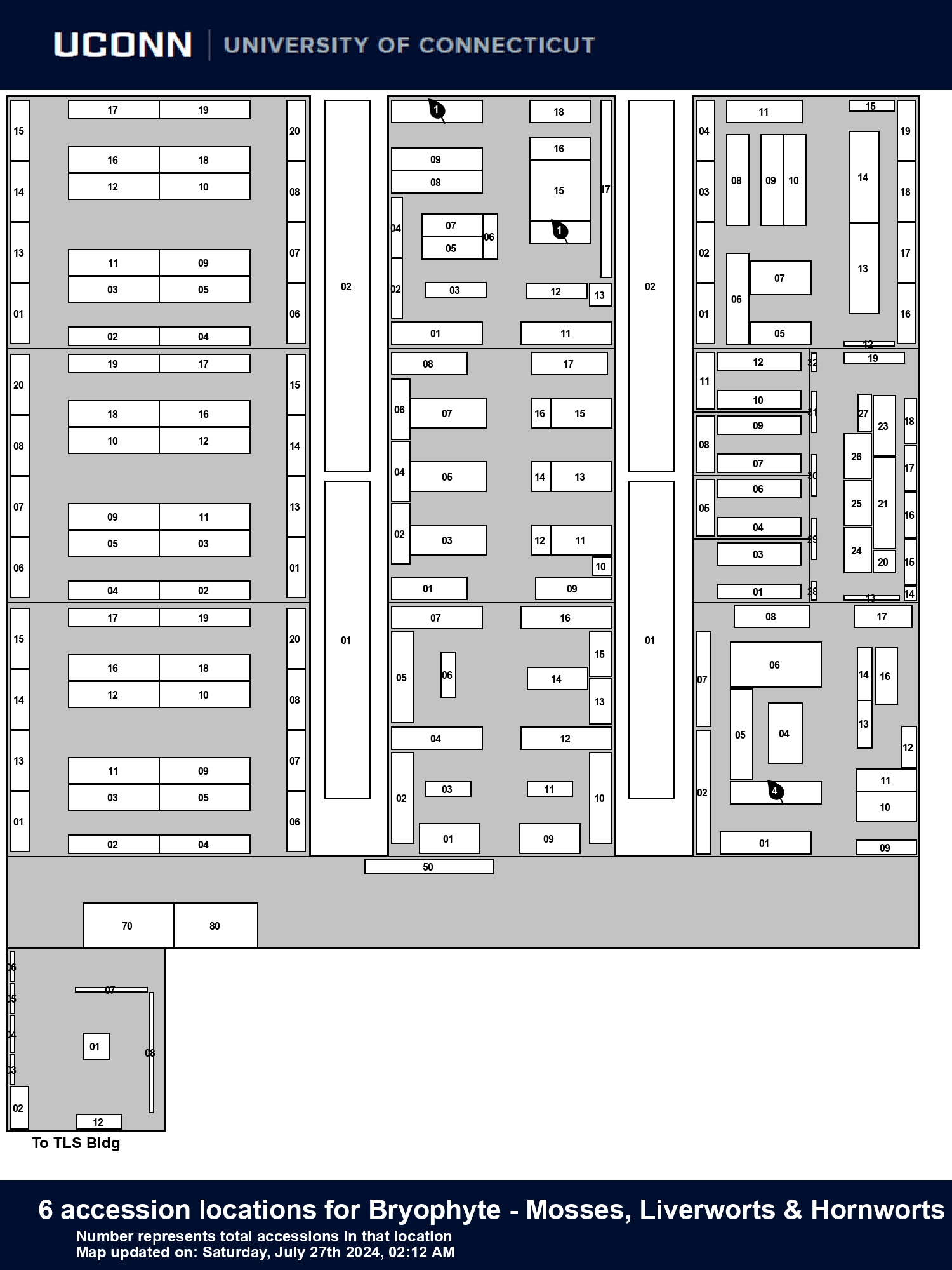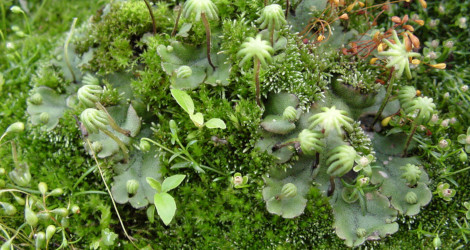SPECIAL COLLECTION:
Bryophyte - Mosses, Liverworts & Hornworts
Bryophyte is a traditional name used to refer to all embryophytes (land plants) that do not have true vascular tissue and are therefore called "non-vascular plants". Some bryophytes do have specialized tissues for the transport of water; however, since these do not contain lignin, they are not considered to be true vascular tissue. As of 2014, it is uncertain whether bryophytes are a natural or monophyletic group or a paraphyletic group, but the name is convenient and remains in use as a collective term for mosses, hornworts, and liverworts. Bryophytes produce enclosed reproductive structures (gametangia and sporangia), but they produce neither flowers nor seeds, reproducing via spores. The term "bryophyte" comes from Greek βρύον, bryon, "tree-moss, oyster-green" + φυτόν – phyton "plant".1
References:
Greenhouse Locator Map:
References:
- Bryophyte at Wikipedia. Last accessed 10 December 2015.
Greenhouse Locator Map:

data regenerated on Sat, 26 Jul 2025 02:12:17 -0400
6 Accessions:
Number in parentheses references locator map icons
- {1} Sphagnum sp. - Sphagnum Moss, Peat Moss - Sphagnaceae
- {2} Anthoceros punctatus - Anthocerotaceae W/C
- {3} Conocephalum conicum - Great Scented Liverwort - Conocephalaceae
- {3} Conocephalum conicum - Great Scented Liverwort - Conocephalaceae
- {3} Marchantia polymorpha - Umbrella Liverwort - Marchantiaceae

- {3} Marchantia polymorpha - Male specimens - Marchantiaceae

W/C = Wild Collected
 = Currently Flowering
= Currently Flowering = Image(s) Available
= Image(s) Available = map available for this accession
= map available for this accession
 = voucher(s) on file at CONN for this accession
= voucher(s) on file at CONN for this accession = accession added within past 90 days
= accession added within past 90 days
